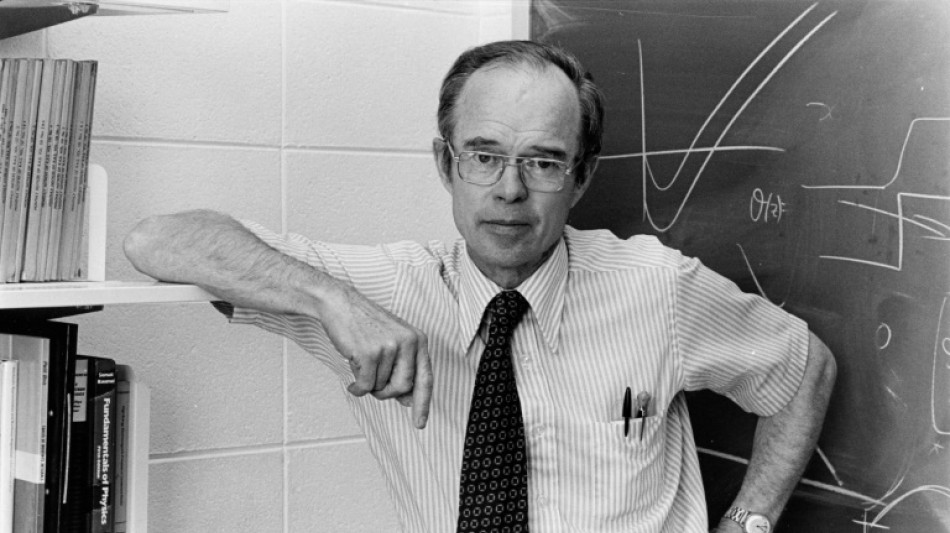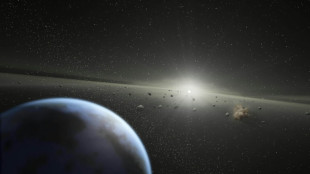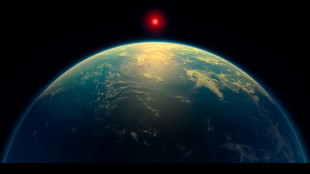
-
 Vance discusses migration during Vatican meeting with pope's right-hand man
Vance discusses migration during Vatican meeting with pope's right-hand man
-
Afghan FM tells Pakistan's top diplomat deportations are 'disappointment'

-
 British cycling icon Hoy and wife provide solace for each other's ills
British cycling icon Hoy and wife provide solace for each other's ills
-
Money, power, violence in high-stakes Philippine elections

-
 Iran, US hold second round of high-stakes nuclear talks in Rome
Iran, US hold second round of high-stakes nuclear talks in Rome
-
Japanese warships dock at Cambodia's Chinese-renovated naval base

-
 US Supreme Court pauses deportation of Venezuelans from Texas
US Supreme Court pauses deportation of Venezuelans from Texas
-
Pakistan foreign minister arrives in Kabul as Afghan deportations rise

-
 Heat and Grizzlies take final spots in the NBA playoffs
Heat and Grizzlies take final spots in the NBA playoffs
-
Iran, US to hold second round of high-stakes nuclear talks in Rome

-
 Humanoid robots stride into the future with world's first half-marathon
Humanoid robots stride into the future with world's first half-marathon
-
Migrant's expulsion puts Washington Salvadorans on edge

-
 Plan for expanded Muslim community triggers hope, fear in Texas
Plan for expanded Muslim community triggers hope, fear in Texas
-
Pakistan foreign minister due in Kabul as deportations rise

-
 White House touts Covid-19 'lab leak' theory on revamped site
White House touts Covid-19 'lab leak' theory on revamped site
-
Dodgers star Ohtani skips trip to Texas to await birth of first child

-
 US senator says El Salvador staged 'margarita' photo op
US senator says El Salvador staged 'margarita' photo op
-
Ford 'adjusts' some exports to China due to tariffs

-
 Thomas maintains two-shot lead at RBC Heritage
Thomas maintains two-shot lead at RBC Heritage
-
US to withdraw some 1,000 troops from Syria

-
 Four killed after spring storms wreak havoc in the Alps
Four killed after spring storms wreak havoc in the Alps
-
Spurs' Popovich reportedly home and well after 'medical incident'

-
 Trump goes to war with the Fed
Trump goes to war with the Fed
-
Celtics chase second straight NBA title in playoff field led by Thunder, Cavs

-
 White House site blames China for Covid-19 'lab leak'
White House site blames China for Covid-19 'lab leak'
-
Norris edges Piastri as McLaren top Jeddah practice

-
 Trump warns US could ditch Ukraine talks if no progress
Trump warns US could ditch Ukraine talks if no progress
-
Judge denies Sean 'Diddy' Combs push to delay trial

-
 80 killed in deadliest US attack on Yemen, Huthis say
80 killed in deadliest US attack on Yemen, Huthis say
-
Lebanon says two killed in Israeli strikes in south

-
 Trump says US will soon 'take a pass' if no Ukraine deal
Trump says US will soon 'take a pass' if no Ukraine deal
-
F1 success is 'like cooking' - Ferrari head chef Vasseur

-
 Cycling mulls slowing bikes to make road racing safer
Cycling mulls slowing bikes to make road racing safer
-
Macron invites foreign researchers to 'choose France'

-
 Klopp 'happy' in new job despite Real Madrid rumours: agent
Klopp 'happy' in new job despite Real Madrid rumours: agent
-
Alcaraz into Barcelona semis as defending champion Ruud exits

-
 Vance meets Italy's Meloni before Easter at the Vatican
Vance meets Italy's Meloni before Easter at the Vatican
-
Evenepoel returns with victory in Brabantse Pijl

-
 Maresca confident he will survive Chelsea slump
Maresca confident he will survive Chelsea slump
-
Mob beats to death man from persecuted Pakistan minority

-
 Lebanon says one killed in Israeli strike near Sidon
Lebanon says one killed in Israeli strike near Sidon
-
Arsenal's Havertz could return for Champions League final

-
 US officials split on Ukraine truce prospects
US officials split on Ukraine truce prospects
-
Client brain-dead after Paris cryotherapy session goes wrong

-
 Flick demands answers from La Liga for 'joke' schedule
Flick demands answers from La Liga for 'joke' schedule
-
'Maddest game' sums up Man Utd career for Maguire

-
 Trial opens for students, journalists over Istanbul protests
Trial opens for students, journalists over Istanbul protests
-
Gaza rescuers say Israeli strikes kill 24 after Hamas rejects truce proposal

-
 'Really stuck': Ukraine's EU accession drive stumbles
'Really stuck': Ukraine's EU accession drive stumbles
-
'Not the time to discuss future', says Alonso amid Real Madrid links


'Visionary' US astrophysicist Eugene Parker dead at 94: NASA
Eugene Parker, a pioneering American astrophysicist who developed a mathematical model predicting the stream of charged particles from the Sun known as solar wind, has died aged 94, NASA said on Wednesday.
Parker, who in 2018 became the first person to witness the launch of a spacecraft bearing his name, was hailed as a visionary who laid the groundwork for the field of heliophysics, the science of understanding the Sun and its interactions with Earth and the solar system, including space weather.
"We were saddened to learn the news that one of the great scientific minds and leaders of our time has passed," said NASA Administrator Bill Nelson in a statement. Parker died Tuesday, according to the University of Chicago.
Born on June 10, 1927 in Michigan, Parker earned a bachelors degree in physics from Michigan State University and a PhD from Caltech, then taught at the University of Utah before settling at the University of Chicago, his longtime home, in 1955.
He began studying the temperature of the Sun's corona, and his calculations showed the conditions should produce a supersonic flow of particles off the surface.
The idea was initially met with skepticism -- even ridicule.
It only saw publication in the Astrophysical Journal when then editor and future Nobel prize winner Subrahmanyan Chandrasekhar realized he could not find a flaw in Parker's math, and overrode the objections of two reviewers.
The theory was proved correct in 1962 when NASA's Mariner II spacecraft encountered the stream of particles, called the solar wind.
Scientists now know that solar wind blankets all the planets, protecting them from harmful radiation, but also at times disrupting communications here on Earth when solar flares occur.
He also proposed the idea of "nanoflares" -- small solar explosions that occur all over the Sun -- which are responsible for the superheated corona, which was hotter than the surface, and couldn't be explained by known physics at the time.
Parker went on to study cosmic rays, the magnetic fields of galaxies and myriad other topics, and won numerous accolades including the US National Medal of Science, the Kyoto Prize, the Crafoord Prize and the American Physical Society Medal for Exceptional Achievement in Research.
"Anyone who knew Dr. Parker, knew that he was a visionary," said Nicola Fox, director of NASA's heliophysics division.
NASA's Parker Solar Probe, named after Parker, was launched in 2018, circling the Sun closer than any spacecraft had previously ventured.
It has already sent back troves of valuable data leading to new discoveries about space weather and the detection of a long theorized zone where the Sun's radiation vaporizes all cosmic dust.
C.Kovalenko--BTB


